242 episodes


Last weekend our friends and neighbours at the Centre for Mathematical Sciences at the University of Cambridge put on a great event: the Mathematics Discovery Day https://maths.org/events/mathematics-discovery-day-cambridge-festival, part of the Cambridge Festival. Among the may hands-on activities, games and pop-up explorations were the hugely popular, and well-attended, workshops for students delivered by our colleagues Liz and Charlie https://nrich.maths.org/2714 from NRICH https://nrich.maths.org/. Our brilliant colleague Julia Hawkins https://www.damtp.cam.ac.uk/person/jemh4 herded academics and volunteers, juggled props and generally made sure that everything went smoothly. At the same time our partners at the Isaac Newton Institute https://newton.ac.uk/ next door hosted one of our favourite physicists: Ben Allanach https://www.damtp.cam.ac.uk/user/bca20/, Professor of Theoretical Physics at the University of Cambridge. Ben gave a talk called The force awakens: Quantum collisions https://www.newton.ac.uk/outreach/ongoing-initiatives/cambridge-festival/, in which he explored experiments at the Large Hadron Collider (LHC), particle physics, as well as recent research results which suggested there may be a fifth force of nature, hitherto unknown to science. For those who weren't able to attend Ben's talk we revisit an interview with him from last year, in which he explains this intriguing (and if true sensational) result about a potential new force. The image above illustrates particle collisions at the LHC and is courtesy CMS http://cms.web.cern.ch/news/observation-new-particle-mass-125-gev. This content now forms part of our collaboration with the Isaac Newton Institute for Mathematical Sciences https://www.newton.ac.uk/ (INI). The INI is an international research centre in Cambridge which attracts leading mathematicians from all over the world. You can find all the content from the collaboration here https://plus.maths.org/content/ini.
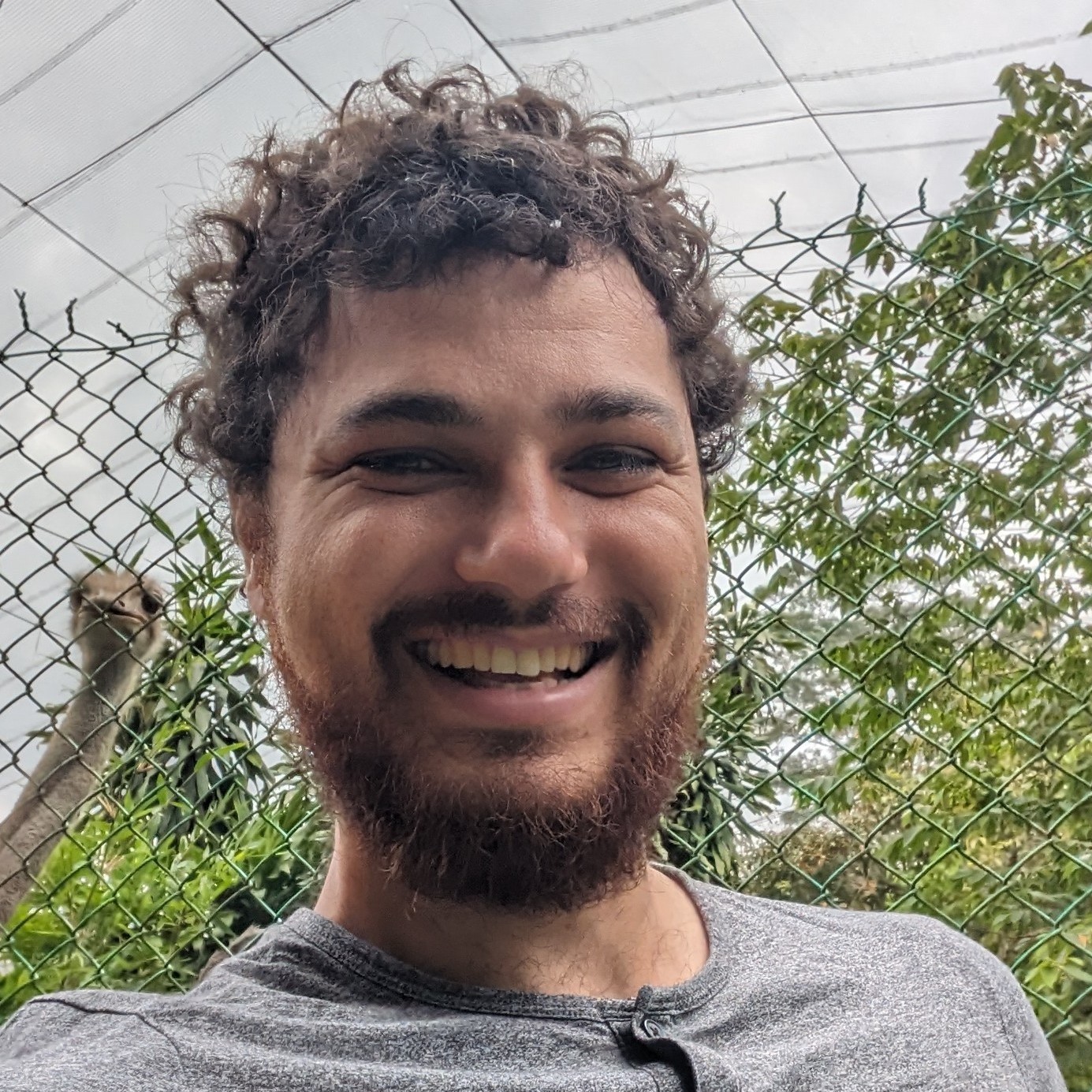

Artificial intelligence has made astonishing progress in the last few years. Perhaps surprisingly, all of the amazing things we've seen, from ChatGPT to generative AI, are powered by same mathematical technique: machine learning, and in particular deep learning. In this episode of Maths on the move we talk to Kweku Abraham https://maths4dl.ac.uk/team-member/kweku-abraham, member of Maths4DL https://maths4dl.ac.uk/, a research project which investigates deep learning, and postdoctoral researcher at the University of Cambridge. Kweku explains how machine learning works, why it's so powerful and whether there are any limits to what it can achieve, and the kind of maths he works on every day. To find out more about the topics discussed in this episode, see Artificial intelligence and deep learning: Your questions answered https://plus.maths.org/content/artificial-intelligence-and-deep-learning-your-questions-answered. This content is part of our collaboration with the Mathematics for Deep Learning https://maths4dl.com/ (Maths4DL) research programme, which brings together researchers from the universities of Bath and Cambridge, and University College London. Maths4DL aims to combine theory, modelling, data and computation to unlock the next generation of deep learning. You can see more content produced with Maths4DL here https://plus.maths.org/content/tags/maths4dl.


We’re now all very aware that climate change is not just a problem for the future – 2023 was officially the hottest year on record ever. And as well as impacting our lives through food security, flooding and drought, climate change can also impact our health by the impact it can have on the spread of diseases. A very interesting group of people came together to discuss this in January 2024. Policy makers, climate scientists, epidemiologists and mathematicians met at a workshop https://www.maths.ox.ac.uk/node/65901 at the University of Oxford to discuss the impact of climate change on epidemics. We spoke to one of the organisers, Helena Stage https://research-information.bris.ac.uk/en/persons/helena-stage, from the University of Bristol, about how exactly climate change impacts the spread of diseases, how maths can help and why it's so important to think globally. Helena Stage You can find out more about disease modelling and epidemiology in our library for beginners https://plus.maths.org/content/epidemiology-beginners, or our work with JUNIPER https://plus.maths.org/content/juniper (the Joint UNIversities Pandemic and Epidemiological Research network). And you can find out more about climate change and how maths can help in these articles and podcasts https://plus.maths.org/content/tags/mathematics-and-climate-change. This podcast was produced as part of our collaborations with JUNIPER https://maths.org/juniper/, the Joint UNIversity Pandemic and Epidemic Response modelling consortium, and the Isaac Newton Institute https://www.newton.ac.uk/ for Mathematical Sciences (INI), both of whom funded the workshop discussed in this episode. JUNIPER comprises academics from the universities of Cambridge, Warwick, Bristol, Exeter, Oxford, Manchester, and Lancaster, who are using a range of mathematical and statistical techniques to address pressing question about the control of COVID-19. You can see more content produced with JUNIPER here https://plus.maths.org/content/juniper. The INI is an international research centre and our neighbour here on the University of Cambridge's maths campus. It attracts leading mathematical scientists from all over the world, and is open to all. Visit www.newton.ac.uk https://www.newton.ac.uk/ to find out more.
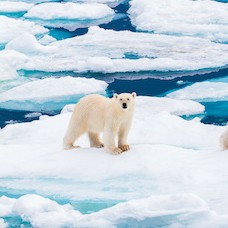

Could we make the clouds brighter so they reflect more of the Sun's warming rays back into space to keep us cooler? Or make Arctic ice thicker so it lasts longer over the summer? These ideas might sound slightly fantastical, but they're active research areas at the Centre for Climate Repair https://www.climaterepair.cam.ac.uk/ which has recently become our neighbour here at the Centre for Mathematical Sciences at the University of Cambridge. In this episode of Maths on the move the Centre's Director of Research, Shaun Fitzgerald https://www.climaterepair.cam.ac.uk/people/dr-shaun-fitzgerald-obe-freng, tells us more about the Centre's work and its three-fold mission: to reduce emissions of greenhouse gases, to remove excess green house gases from the atmosphere, and to refreeze the Arctic. You may also want to read the article https://plus.maths.org/content/what-climate-repair accompanying this episode of Maths on the move. For more about mathematics and climate change, see here. https://plus.maths.org/content/tags/mathematics-and-climate-change


In this, the last episode of Maths on the move for this year, we look back on 2023 and forward to 2024. We talk about some highlights in our coverage of this year's mathematics, and some of the exciting things to come next year. It's a crazy journey featuring breakthroughs in pure maths, the maths of music and Ed Sheeran, renewable energy sources, the maths of justice, and the epidemiology of climate change. We hope you enjoy this final episode of the year and wish you all the best for next year! And remember: no matter how hard a piece of mathematics might be, there's always something in it that everyone can relate to! To find out more about the topics mentioned in this episode see __ __ To find out more about our collaboration with the Isaac Newton Institute see here https://plus.maths.org/content/ini, about our collaboration with the JUNIPER network see here https://plus.maths.org/content/juniper, and about our collaboration with Maths4DL see here https://plus.maths.org/content/tags/maths4dl.


To help mitigate climate change the UK government has pledged to decarbonised UK electricity supply by 2035. That's a huge science and engineering challenge on a very tight deadline. In this episode we talk to two people who know all about the challenges involved: Chris Dent https://www.maths.ed.ac.uk/school-of-mathematics/people/a-z?person=524, Professor of Industrial Mathematics, and Lars Schewe https://www.maths.ed.ac.uk/school-of-mathematics/people/a-z?person=740, Reader in Operational Research, both of the University of Edinburgh. Both helped to organise an intensive two week "deep dive" workshop on the Mathematics and statistics for low carbon energy systems earlier this year as part of a longer research programme https://www.newton.ac.uk/event/dde/ at the Isaac Newton Institute for Mathematical Sciences (INI) in Cambridge. Chris and Lars tell us why decarbonising the energy network also resents huge mathematical challenges — and why the effort isn't unlike the Apollo mission that got people to the Moon in the 1960s. You can read more about the topic discussed in this episode in this article https://plus.maths.org/content/balancing-equations-low-carbon-energy-network. This content was produced as part of our collaboration with the Isaac Newton Institute https://www.newton.ac.uk/ for Mathematical Sciences (INI) – you can find all the content from the collaboration here https://plus.maths.org/content/ini. The INI is an international research centre and our neighbour here on the University of Cambridge's maths campus. It attracts leading mathematical scientists from all over the world, and is open to all. Visit www.newton.ac.uk https://www.newton.ac.uk/ to find out more.
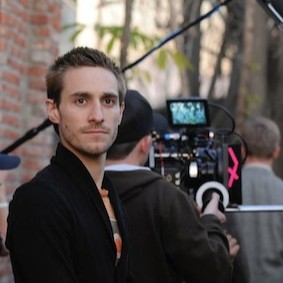

We continue our series about bringing maths to the stage and screen by going back to 2012 when we were lucky enough to host the UK premiere of the Travelling Salesman https://plus.maths.org/content/travelling-salesman-0, here at the Centre for Mathematical Sciences, our home. It is an unusual movie: despite almost every character being a mathematician there's not a mad person in sight. Moreover, the plot centres on one of the greatest unsolved problems in mathematics, does P = NP https://plus.maths.org/content/travelling-salesman? Timothy Lanzone http://www.travellingsalesmanmovie.com/, the writer and director, tells us about creating drama from mathematics, and we discuss the maths behind the movie. (The sound effects used in this podcast are by jlozano http://www.freesound.org/people/jlozano/sounds/19556/ and nemoDaedalus http://www.freesound.org/people/nemoDaedalus/sounds/77620/.) You can read more about the travelling salesman problem https://plus.maths.org/content/travelling-salesman, P versus NP https://plus.maths.org/content/whats-your-problem, and cryptography https://plus.maths.org/content/tags/cryptography on plus.maths.org
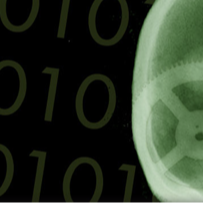

When you think of Alan Turing you might think of his work breaking the Enigma code in World War II. Or you might think of his work that helped build the foundations of computer science and mathematical logic. Or you might even think of his groundbreaking work in mathematical biology on morphogensis which helps explain animal patterns. One thing we hadn't thought of, until 2013 that is, was that he could be the emotional centerpoint of a musical. The universal machine is a musical about Alan Turing's life and work that was staged in London in 2013. As part of our series about putting maths on stage and screen, we revisit our 2013 interview with the writer and director David Byrne, actor Richard Delaney, who played Turing, and assistant director Natalie York, to find out how you turn such a story, and the maths in it, into a musical. We are very grateful to Dominic Brennan https://www.dombrennan.co.uk/, who wrote the music for The universal machine, for giving us permission to use the track Building The Bombe Part Two https://www.dombrennan.co.uk/the_universal_machine.html from the show. The universal machine poster detail. For more information: __ __


This is the second part of our mini series focussing on mathematics coming to life on stage and in film. We revisit our 2008 interview with mathematician and actor Victoria Gould and mathematician Marcus DuSautoy https://www.ox.ac.uk/news-and-events/find-an-expert/professor-marcus-du-sautoy, who were both involved in the development of the play A disappearing number produced by Complicité. The play explores the fascinating collaboration between the mathematicians GH Hardy https://mathshistory.st-andrews.ac.uk/Biographies/Hardy/ and Srinivasa Ramanujan https://mathshistory.st-andrews.ac.uk/Biographies/Ramanujan/. Find out how theatre can embody, not just the story of the people involved, but also the mathematics itself. You can also read about A disappearing number in this article https://plus.maths.org/issue49/features/complicite/index.html. To find out more about Victoria Gould's career as an actor and mathematician, see this article https://plus.maths.org/content/os/issue49/interview/index or listen to last week's episode https://plus.maths.org/content/plus-careers-podcast-4-december-2008-actor-and-mathematician of Maths on the move.


Victoria Gould has always known she would be an actor, and went straight from studying arts at school to running her own theatre company. But she eventually had to come clean about her guilty secret - she loves maths - and has since managed to combine a career as a research mathematician and teacher with a successful acting career on television and in theatre. For this episode of Maths on the move, which was recorded in 2008, Victoria told us what it's like being an actor and a mathematician and how those two, at first sight very different, areas overlap. You can also read the article https://plus.maths.org/content/os/issue49/interview/index accompanying this podcast, and find out more about the play A disappearing number here https://plus.maths.org/content/disappearing-number. We were inspired to revisit this episode when we met mathematical film maker Ekaterina Eremenko https://page.math.tu-berlin.de/~eremenko/ at this year's Heidelberg Laureate Forum. Eremenko's latest film, Solving the Bonnet problem, really gets across that mathematics is a dynamic, and sometimes dramatic, pursuit that can be well suited for the stage and screen. You can watch the trailer here https://www.youtube.com/watch?v=iQvsKbw-ksg.
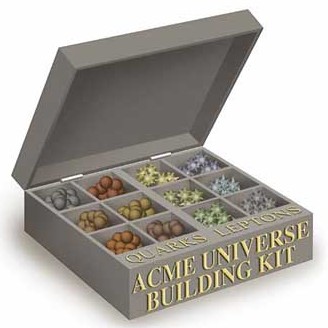

In the summer we came across news coverage https://www.theguardian.com/science/2023/aug/11/scientists-fifth-force-nature claiming that scientist were on the verge of discovering a fundamental force of nature they hadn't previously known about. This would be a fifth force, in addition to gravity, electromagnetism, and the strong and weak nuclear forces. Such a discovery would be quite a revolution, so we went to talk to our friend Ben Allanach https://www.damtp.cam.ac.uk/user/bca20/, Professor of Theoretical Physics at the University of Cambridge, to find out more. Ben explained the science, gave us his personal hunch regarding the experimental results, and provided a fascinating glimpse into life at the cutting edge of physics. Ben Allanach To find out more about the topics explored in this podcast, see The physics of elementary particles https://plus.maths.org/content/physics-elementary-particles and A brief introduction to quantum field theory https://plus.maths.org/content/brief-history-quantum-field-theory. Click here https://plus.maths.org/content/search/node?keys=Ben+allanach to see all our content featuring Ben Allanach.
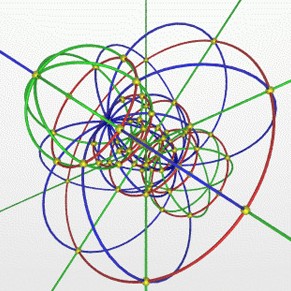

How many dimensions are there? We might not be aware, but we are actually used to living in a curved, multidimensional Universe. In this episode theoretical physicist David Berman https://www.qmul.ac.uk/spcs/staff/academics/profiles/dsberman.html explains how, and he also dives into the world of string theory which predicts that the Universe has ten dimensions, some of which are hidden from our view. We first published this episode back in 2012, as part of our Science fiction, science fact https://plus.maths.org/content/science-fiction-science-fact-reports-frontiers-physics project. David Berman You can also read the articles that accompany this podcast: Kaluza, Klein and their story of a fifth dimension https://plus.maths.org/content/kaluza-klein-and-their-story-fifth-dimension and The ten dimensions of string theory https://plus.maths.org/content/10-dimensions-and-more-string-theory.
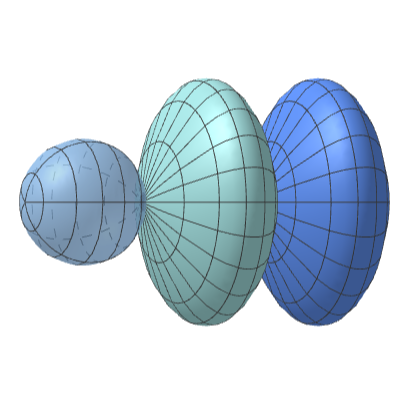

n this podcast we bring you breaking news from the world of topology! Four mathematicians, all in earlier stages of their career, have resolved the long-standing telescope conjecture which explores holes in spheres – of any dimension! The result was announced this summer at a conference organised by Isaac Newton Institute for Mathematical Sciences http://newton.ac.uk/ in Cambridge (INI). We talk to two of these mathematicians, Tomer Schlank https://math.mit.edu/directory/profile.html?pid=1203 and Jeremy Hahn https://web.mit.edu/~jhahn01/www/, to get a gist of this high-powered result in pure mathematics, which is nevertheless wonderfully intuitive. So fasten your seatbelt and join us on a trip into the wonderful world of homotopy theory! Jeremy Hahn Tomer Schlank To read an article exploring the telescope conjecture and for some background reading, see here https://plus.maths.org/content/telescope-topology. This content was produced as part of our collaboration with the Isaac Newton Institute for Mathematical Sciences https://www.newton.ac.uk/ (INI). The INI is an international research centre in Cambridge which attracts leading mathematicians from all over the world. You can find all the content from the collaboration here https://plus.maths.org/content/ini.


How is mathematics related to frequency related to pitch? We found out from our favourite music correspondent, Oli Freke! In this podcast you can hear how the music we love emerges from pure mathematical beats. This podcast was originally released earlier this year when musician Ed Sheeran was in the news as he was being sued for similarities between his song Thinking out loud from 2014, and Marvin Gaye's song Get it on from 1973. But, given the way we write music to fit into specific genres, is it possible to write unique music with the limited quantity of notes and chords available? After first answering this question in this podcast, Oli has now written a brilliant article, From clicks to chords https://plus.maths.org/content/clicks-chords-0, where you can see some of the connections between maths and music come to life. You can find out more about the maths in music in Oli's articles other – How many melodies are there? https://plus.maths.org/content/how-many-melodies-are-there and Sine language https://plus.maths.org/content/sine-language. And you can find more of Oli's music, and his book "Synthesizer Evolution", here https://linktr.ee/olifreke! The music in this podcast comes from, of course, Oli Freke https://soundcloud.com/olifreke! The track is called Funk Off https://soundcloud.com/olifreke/funk-off.
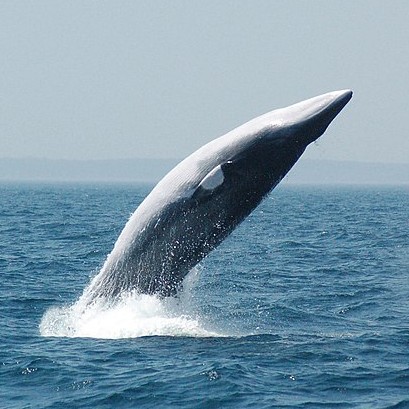

We humans have many rules and regulations surrounding noise — because we recognise that noise disruption is annoying, stressful, and ultimately robs us of our health. Spare a thought for whales then, who have to put up with the constant noise caused by shipping and the construction of oil rigs and wind farms in the oceans. There are concerns that the noise pollution we cause bothers and confused the whales so much, it may even disrupt their ability to go on their annual migrations. In this episode we talk to Stuart Johnston https://stuartjohnston.phd/ of the University of Melbourne in Australia who uses mathematics to understand the migration of whales and how it might be impacted by human generated noise. The ultimate aim is to figure out what we can do to mitigate the disruption we cause. We met Stuart at a workshop on collective behaviour https://www.newton.ac.uk/event/mmvw02/, which took place at the Newton Institute for Mathematical Sciences https://newton.ac.uk/ (INI) in Cambridge in August 2023. The workshop was part of a 6-month research programme on the mathematics of movement https://www.newton.ac.uk/event/mmv/ which is currently taking place at the INI. This content was produced as part of our collaboration with the Isaac Newton Institute for Mathematical Sciences https://www.newton.ac.uk/ (INI). The INI is an international research centre in Cambridge which attracts leading mathematicians from all over the world. You can find all the content from the collaboration here https://plus.maths.org/content/ini.
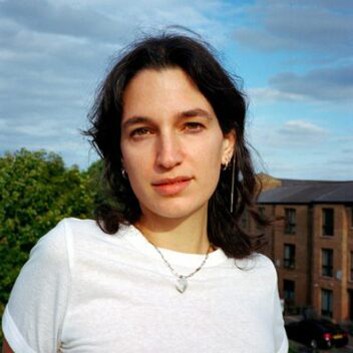

This week we co-host a fascinating episode of the Isaac Newton Institute's Living Proof https://www.newton.ac.uk/news/ini-podcast/ podcast. In the episode Dan Aspel speaks to Coralie Colmez https://www.coraliecolmez.com/, author of the young adult novel The irrational diary of Clara Valentine, recently chosen as one of Chalkdust magazine's https://chalkdustmagazine.com/ books of the year. Coralie’s ambition was to write a story rich in both mathematics and mystery, with the Chalkdust review highlighting that "the explanations of the solutions to these puzzles are blended into the story expertly". In this interview, Coralie explains further about the books origins, its intentions and what comes next. Find out more about Coralie's writing, download a free PDF of the book, and find links to other online sellers here https://www.coraliecolmez.com/books. This podcast is part of our collaboration with the Isaac Newton Institute https://www.newton.ac.uk/ for Mathematical Sciences (INI) – you can find all the content from our collaboration here https://plus.maths.org/content/ini. The INI is an international research centre and our neighbour here on the University of Cambridge's maths campus. It attracts leading mathematical scientists from all over the world, and is open to all. Visit www.newton.ac.uk https://www.newton.ac.uk/ to find out more.


Did you do anything fun on your summer holidays? The mathematicians in this podcast spent some of their summer helping to create the perfect smoothie, getting the most sugar out of sugar cane, and attacking other important real-world problems. They did all this attending the Graduate Modelling Camp https://gateway.newton.ac.uk/event/tgm132, which is organised every year by the Newton Gateway to Mathematics in Cambridge. The camp gives early career mathematicians a chance to experience life as a mathematical modeller by challenging them to solve problems posed by industry. We talk to Chris Breward https://www.maths.ox.ac.uk/people/chris.breward, who has been helping to run the modelling camp for many years, to PhD students Emily Cook, Julian Glover, and Michael Smah, who attended this year's camp, and to Ashleigh Hutchinson who took part as a mentor. They all enjoyed the camp immensely — find out why in this podcast! This content was produced as part of our collaboration with the Isaac Newton Institute for Mathematical Sciences https://www.newton.ac.uk/ (INI) and the Newton Gateway to Mathematics https://gateway.newton.ac.uk/. The INI is an international research centre in Cambridge which attracts leading mathematicians from all over the world. The Newton Gateway is the impact initiative of the INI, which engages with users of mathematics. You can find all the content from the collaboration here https://plus.maths.org/content/ini.
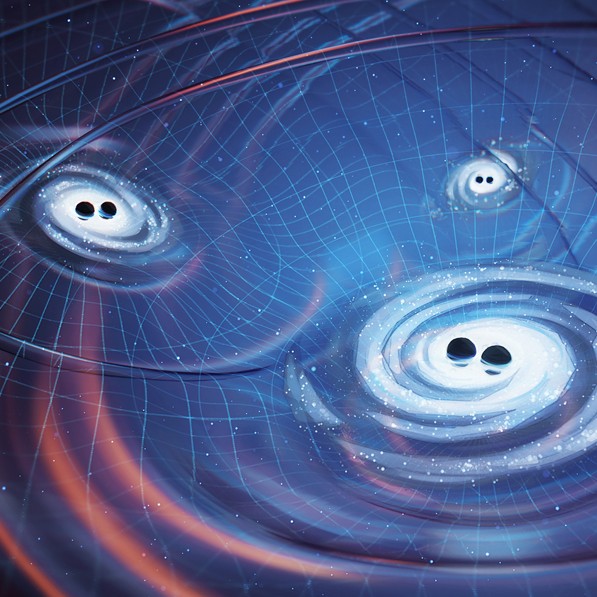

There's been some huge news in the world of cosmology: for the first time scientists have detected a low frequency hum of gravitational waves. The new results were published by the North American Nanohertz Observatory for Gravitational Waves http://nanograv.org/, NANOGrav for short. The NANOGrav team were not alone — they coordinated with collaborations in Europe, India, Australia, and China, which released similar findings at the same time. In this podcast we find out what these new results mean, and why they're so exciting, with Michalis Agathos, Amelia Drew, and Ulrich Sperhake of the Stephen Hawking Centre for Theoretical Cosmology https://www.ctc.cam.ac.uk/at the University of Cambridge. Join us on this fascinating, and slightly mind-bending, cosmic ride! To find out more about the topics discussed in this podcast see: __ __ You might also want to listen to our recent podcast A new map of dark matter https://plus.maths.org/content/new-map-dark-matter. The illustration above is an artist's rendering of black hole binaries emitting gravitational waves, produced by Olena Shmahalo for NANOGrav and reproduced here under CC BY 4.0 https://creativecommons.org/licenses/by/4.0/.
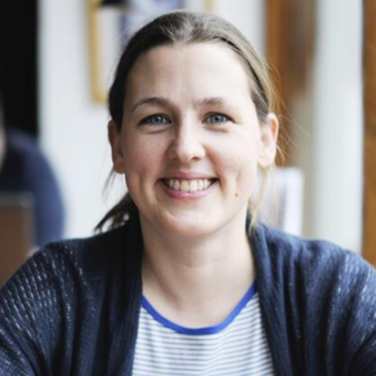

People don't usually think about maths and literature as related subjects, but it turns out that there are plenty of connections between the two. In this podcast we talk to mathematician Sarah Hart about her brilliant book Once upon a time: The wondrous connections between mathematics and literature https://harpercollins.co.uk/products/once-upon-a-prime-the-wondrous-connections-between-mathematics-and-literature-sarah-hart?variant=40072461058126. Sarah tells us about the links between poetry and mathematical proof, the maths of Moby dick and the The luminaries, and why mathematical patterns and references can enhance your enjoyment of a book even when you're not aware of them. To find out more about the problem of squaring the circle, which is mentioned in this podcast, see Mathematical mysteries: Transcendental meditation https://plus.maths.org/content/mathematical-mysteries-transcendental-meditation. To find out more about conic sections, see here. https://plus.maths.org/content/tags/conic-sections


"I think I'll stop here." This is how, on 23rd June 1993, Andrew Wiles https://www.maths.ox.ac.uk/people/andrew.wiles ended his series of lectures at the Isaac Newton Institute http://www.newton.ac.uk/ (INI), our neighbour here at the Centre for Mathematical Sciences. The applause, so witnesses report, was thunderous. Wiles had just announced a proof that had eluded mathematicians for over 350 years: the proof of Fermat's Last Theorem. Wiles' announcement, 30 years ago today, was a thrilling moment in mathematical history. But Fermat's Last Theorem is not just the story of one person. Jack Thorne, https://www.dpmms.cam.ac.uk/person/jat58 who works on new mathematics that builds on Wiles' proof, told us that it is actually a story of people talking to each other over a period of centuries. To celebrate 30 years since that exciting moment, we were lucky enough to speak with Andrew Wiles and Jack Thorne, and also to Tom Körner https://www.dpmms.cam.ac.uk/person/twk10, who was there the day Wiles announced the proof. This is a special joint episode with the INI's Living Proof podcast https://www.newton.ac.uk/news/ini-podcast/, made in collaboration with our friend Dan Aspel, from the INI. You can find out more about Fermat's Last Theorem in the article https://plus.maths.org/content/very-old-problem-turns-30 that accompanies this podcast, and in this collection of further reading https://plus.maths.org/content/content/fermat. This podcast was produced as part of our collaboration with the Isaac Newton Institute https://www.newton.ac.uk/ for Mathematical Sciences (INI) – you can find all the content from the collaboration here https://plus.maths.org/content/ini. The INI is an international research centre and our neighbour here on the University of Cambridge's maths campus. It attracts leading mathematical scientists from all over the world, and is open to all. Visit www.newton.ac.uk https://www.newton.ac.uk/ to find out more.
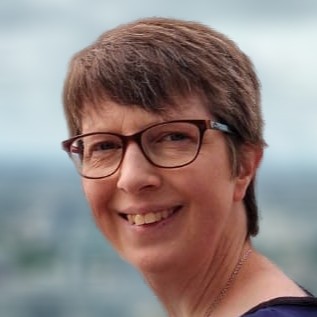

Chocolate and mayonnaise are two of our all time favourite foods, so we were very happy to get the chance to talk to Valerie Pinfield https://www.lboro.ac.uk/departments/chemical/staff/valerie-pinfield/, Professor of Engineering at Loughborough University, who has used maths to work on both chocolate and mayonnaise. We talked to Valerie at the Isaac Newton Institute for Mathematical Sciences https://www.lboro.ac.uk/departments/chemical/staff/valerie-pinfield/ in Cambridge where Valerie is currently co-organising a research programme on the mathematical theory and applications of multiple wave scattering https://www.newton.ac.uk/event/mws/. As we will find out, this has a huge range of applications, from understanding mayonnaise to making invisibility cloaks. While Valerie is a professor at the University of Loughborough now, her career path has also involved work in industry and time out for kids, so we also asked her for some advice for women mathematicians and scientists wondering how to build their career. This podcast was produced as part of our collaboration with the Isaac Newton Institute https://www.newton.ac.uk/ for Mathematical Sciences (INI) – you can find all the content from the collaboration here https://plus.maths.org/content/ini. The INI is an international research centre and our neighbour here on the University of Cambridge's maths campus. It attracts leading mathematical scientists from all over the world, and is open to all. Visit www.newton.ac.uk https://www.newton.ac.uk/ to find out more.
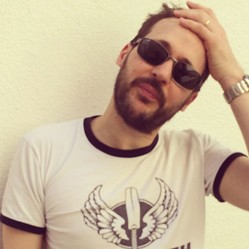

You might have heard in the news recently that musician Ed Sheeran was being sued for similarities between his song Thinking out loud from 2014, and Marvin Gaye's song Get it on from 1973. But, given the way we write music to fit into specific genres, is it possible to write unique music with the limited quantity of notes and chords available? In this podcast Oli Freke, our favourite music correspondent, answers this question and plays us real examples of the connections between maths and music. You can find out more about the maths in music in Oli's articles – How many melodies are there? https://plus.maths.org/content/how-many-melodies-are-there and Sine language https://plus.maths.org/content/sine-language. And you can find more of Oli's music, and his book "Synthesizer Evolution", here https://linktr.ee/olifreke! The music in this podcast comes from, of course, Oli Freke https://soundcloud.com/olifreke! The track is called Funk Off https://soundcloud.com/olifreke/funk-off.
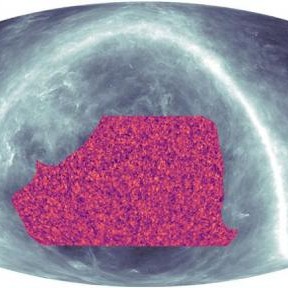

Did you know that we don't know what 85% of the stuff in our Universe is made of? This mysterious 85% is known as dark matter. We can't see it because it doesn't emit or reflect light, but we know it's there because it exerts a gravitational pull on stars and galaxies, and also bends the path of light. In this podcast we talk to Blake Sherwin http://www.damtp.cam.ac.uk/person/bds30 about a brand new map of dark matter that has been produced by a consortium of scientists using data from the Atacama Cosmology Telescope which sits high up in the Chilean Andes. Sherwin is part of that consortium, and he is also Professor of Cosmology and Astrophysics the University of Cambridge and a member of the Stephen Hawking Centre for Theoretical Cosmology at Cambridge https://www.ctc.cam.ac.uk/. Sherwin tells us how you go about producing a map of something you can't see, in how far the new map solves the so-called crisis of cosmology, and whether we will ever find out what dark matter is made of. To find out more about dark matter, read Maths in a minute: Dark matter https://plus.maths.org/content/maths-minute-dark-matter and What is dark matter? https://plus.maths.org/content/what-dark-matter And you can find all the details about the research by Blake, his PhD student Frank Qu, and their colleagues in their series of papers here https://arxiv.org/pdf/2304.05202.pdf, here https://arxiv.org/pdf/2304.05203.pdf and here https://arxiv.org/pdf/2304.05196.pdf. The music in this podcast is by eusa and the track is called Plankton. you can find their music on Soundcloud https://soundcloud.com/eusa.


Was the mathematical modelling projecting the course of the pandemic too pessimistic, or were the projections justified? Matt Keeling tells our colleagues Ed Hill and Laura Guzmán-Rincón from SBIDER about some of the COVID models that fed into public policy.----more---- Matt Keeling ----more----We're very pleased to host this episode of SBIDER Presents https://warwick.ac.uk/fac/cross_fac/zeeman_institute/podcasts/, one of the podcasts produced by the Zeeman Institute for Systems Biology & Infectious Disease Epidemiology Research https://warwick.ac.uk/fac/cross_fac/zeeman_institute/ (SBIDER). You can find out more about the work Matt Keeling is discussing in this podcast in our article Shining a light on COVID modelling https://plus.maths.org/content/shining-light-covid-modelling. And you can hear more from Ed and Laura in our previous podcasts On the mathematical frontline: Ed Hill https://plus.maths.org/content/mathematical-frontline-ed-hill and Climate change and ready meals: Challenges for epidemiologists https://plus.maths.org/content/beyond-covid-what-are-epidemiologists-getting-now. This podcast is part of our collaboration https://plus.maths.org/content/joining-forces-covid19 with JUNIPER https://maths.org/juniper/, the Joint UNIversity Pandemic and Epidemic Response modelling consortium. JUNIPER comprises academics from the universities of Cambridge, Warwick, Bristol, Exeter, Oxford, Manchester, and Lancaster, who are using a range of mathematical and statistical techniques to address pressing questions about the control of COVID-19. You can see more content produced with JUNIPER here https://plus.maths.org/content/juniper.
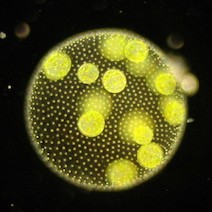

In a tank in an underground laboratory in Cambridge a little green alga is executing a powerful breaststroke. It belongs to a group of algae called volvocales and it doesn't have a brain. So how can it coordinate its tiny little "arms" to perform motions worthy of an Olympic swimmer? Algae going through their paces. (Movies: Kirsty Wan and Raymond E. Goldstein, for more information see this paper https://www.pnas.org/content/113/20/E2784/tab-figures-data) In 2019 we visited Ray Goldstein http://www.damtp.cam.ac.uk/user/gold/, Schlumberger Professor of Complex Physical Systems at Cambridge, and he explained how algae manage to synchronise their so-called flagella, what this means for human physiology, and how it sheds light on the evolution of multi-cellular organisms from single-celled ones. You can also read our article https://plus.maths.org/content/synchronised-swimming on Goldstein's work with volvocales, or watch an interview with Goldstein in this video https://plus.maths.org/content/ray-goldstein-synchronised-swimming. Sound effects in this podcast are from Robinhood76 https://freesound.org/people/Robinhood76/sounds/317067/ and 16HPanskaKanclirova_Victoria https://freesound.org/people/16HPanskaKanclirova_Victoria/sounds/497284/ on freesound.org. This podcast was partially funded by the European Mathematical Society https://euro-math-soc.eu/.
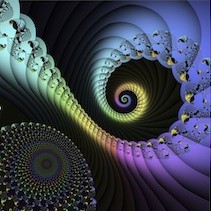

What is infinity? What is infinity plus 100? What is infinity plus infinity? Today's podcast was inspired by questions sent in by our friend Ash. To answer Ash's questions we take a trip to our favourite hotel https://plus.maths.org/content/hilberts-hotel, and we revisit our 2012 interview with our late boss, John D. Barrow https://plus.maths.org/content/JohnBarrowStoriesOfUniverse, when we asked him – does infinity exist? https://plus.maths.org/content/does-infinity-exist Listen to the podcast to find out how infinity can corrupt the youth, why subtracting infinities can give you the right answer, and the weirdness that might be lurking out there in the cosmos... Image created by FAVIO http://www.favioart.com/. You can read more about infinity on plus.maths.org https://plus.maths.org/infinity. And if you have a question about life, the universe and everything you'd like us to answer – email us as plus@maths.cam.ac.uk or contact us on twitter https://twitter.com/plusmathsorg.
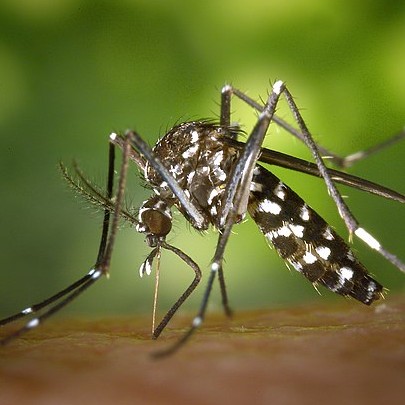

During the pandemic we all learnt to value the work of epidemiologists, whose mathematical models are essential in giving us an idea of where an epidemic might be heading. But just as there's a wide range of infectious diseases apart from COVID, so there's also a wide range of research questions epidemiologists ask. In this podcast we talk to researchers Helena Stage and Laura Guzmán-Rincón https://www.linkedin.com/in/laura-guzman-rincon/ about two such questions. One concerns the fact that a warming climate allows disease-carrying mosquitoes to live in places they previously found too cold. The other asks how you might detect a hidden outbreak of food poisoning coming, for example, from ready meals having been contaminated way back in the production chain. Both require clever mathematical ideas and ingenious detective work. Helena and Laura are members of the JUNIPER modelling consortium http://maths.org/juniper. We met them at a JUNIPER research meeting which took place at the University of Warwick in March 2023. This podcast is part of our collaboration with JUNIPER https://maths.org/juniper/, the Joint UNIversity Pandemic and Epidemic Response modelling consortium. JUNIPER comprises academics from the universities of Cambridge, Warwick, Bristol, Exeter, Oxford, Manchester, and Lancaster, who are using a range of mathematical and statistical techniques to address pressing question about the control of COVID-19. You can see more content produced with JUNIPER here https://plus.maths.org/content/juniper.
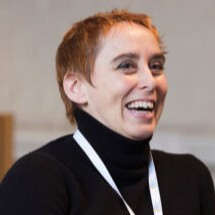

"What's a statistician's favourite sandwich filling?..." Timandra Harkness http://timandraharkness.com/ – presenter, writer, comedian and Fellow of the Royal Statistical Society – told our friends Dan Aspel and Maha Kaouri her favourite maths joke in this episode of the Living Proof podcast https://www.newton.ac.uk/news/ini-podcast/ from the Isaac Newton Institute for Mathematical Sciences. Timandra Harkness Timandra brilliantly chaired several sessions of the Communicating mathematics for the public https://gateway.newton.ac.uk/event/tgm127 event at the Newton Gateway to Mathematics https://gateway.newton.ac.uk/. In this podcast Timandra spoke about how to make maths funny, and how she came to fall in love with mathematics from an arts and humanities background. Oh and the punchline to Timandra's favourite joke? You'll have to listen to the podcast to find out! 00:00 – Introduction 00:44 – Welcome, discussing Communicating mathematics for the public https://gateway.newton.ac.uk/event/tgm127 03:38 – Origins of Timandra's interest in maths, understanding "enough to ask the right questions" 07:50 – Discussing Timandra's book Big Data – Does Size Matter? 11:10 – Other current projects and shows, writing another book about "why everything is personalised" 13:13 – Mingling an arts background with a mathematics focus, "coming out as a closet mathematician" 17:10 – How do you make maths funny as a comedian? … "What's a statistician's favourite sandwich filling?" 21:10 – Future projects This podcast was inspired by the Communicating mathematics for the public https://gateway.newton.ac.uk/event/tgm127 event at the Newton Gateway to Mathematics https://gateway.newton.ac.uk/ in January 2023. (If that joke tickles your funny bone – try this one https://plus.maths.org/content/countably-infinite-number-men-walked-bar!) This podcast is part of our collaboration with the Isaac Newton Institute https://www.newton.ac.uk/ for Mathematical Sciences (INI) – you can find all the content from our collaboration here https://plus.maths.org/content/ini. The INI is an international research centre and our neighbour here on the University of Cambridge's maths campus. It attracts leading mathematical scientists from all over the world, and is open to all. Visit www.newton.ac.uk https://www.newton.ac.uk/ to find out more.
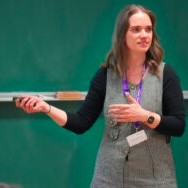

Having empathy with your audience – with all your audiences – is the first step for making your content accessible. Hannah Thomas of the Government Analysis Function https://analysisfunction.civilservice.gov.uk/ explained this in her brilliant talk at the Communicating mathematics for the public https://gateway.newton.ac.uk/event/tgm127 event at the Newton Gateway to Mathematics https://gateway.newton.ac.uk/. Hannah's talk https://www.youtube.com/watch?v=wgC3yoxg-yY was full of insights and practical ideas on how to make all content published online easy to access and use for all users, regardless of impairment, medical condition or disability. Our friends Dan Aspel and Maha Kaouri spoke to Hannah for this episode of the Living Proof https://www.newton.ac.uk/news/ini-podcast/ podcast from the Isaac Newton Institute for Mathematical Sciences. Hannah told them about her work helping to make government data more accessible, the common pitfalls of data accessibility and tips and tricks that can help. They also find our why more people used to get married at the end of the tax year... Hannah Thomas speaking at the Communicating mathematics for the public https://gateway.newton.ac.uk/event/tgm127 event 00:00 – Introduction 00:44 – Welcome, discussing “Communicating Mathematics for the Public” (“as entertaining as Disneyland Paris and definitely more inspiring”) 04:20 – All about Government Analysis Function, a love of data journalism, career history 13:35 – Visualising data and making digital information accessible 21:40 – Common accessibility pitfalls 24:20 – Plans for the future… e-learning resources This podcast was inspired by the Communicating mathematics for the public https://gateway.newton.ac.uk/event/tgm127 event at the Newton Gateway to Mathematics https://gateway.newton.ac.uk/ in January 2023. For more information we strongly recommend you watch Hannah's talk from that event, Data Visualisation and Digital Accessibility: What We Can Do to Help https://www.youtube.com/watch?v=wgC3yoxg-yY. This podcast is part of our collaboration with the Isaac Newton Institute https://www.newton.ac.uk/ for Mathematical Sciences (INI) – you can find all the content from our collaboration here https://plus.maths.org/content/ini. The INI is an international research centre and our neighbour here on the University of Cambridge's maths campus. It attracts leading mathematical scientists from all over the world, and is open to all. Visit www.newton.ac.uk https://www.newton.ac.uk/ to find out more.


We are very happy to work closely with our neighbours, the Isaac Newton Institute for Mathematical Sciences https://www.newton.ac.uk/ (INI), to help explain, celebrate and publicise the research that happens at the Institute. But what challenges does that present? And why should it happen in the first place? Following on from the Communicating mathematics for the public https://gateway.newton.ac.uk/event/tgm127 event at the Newton Gateway to Mathematics https://gateway.newton.ac.uk/ we spoke to the INI's Dan Aspel about our work in this episode of the Living Proof https://www.newton.ac.uk/news/ini-podcast/ podcast. You can find all the content from our collaboration here https://plus.maths.org/content/ini. Communicating from the mathematical frontiers - from plotting a path to the highest peak to exploring the hidden depths. 00:00 – Introduction 00:44 – Welcome, discussing Communicating Mathematics for the Public, the importance of trustworthiness 05:30 – Who you're speaking to vs what you're saying 07:38 – Making higher mathematics accessible to audiences: "any bit of mathematics either comes from somewhere, or is going somewhere, or both" 14:20 – Are there incommunicable subjects? 16:55 – The rarity of maths "headlines" 19:25 – The partnership between INI and Plus magazine – why is it important? 23:25 – Are some topics inherently more interesting? 25:26 – What is the end goal of maths communication? "I would love it if people could see how maths is everywhere… that maths is a language of rhythms and patterns" 30:00 – Looking to the future This podcast was inspired by the Communicating mathematics for the public https://gateway.newton.ac.uk/event/tgm127 event at the Newton Gateway to Mathematics https://gateway.newton.ac.uk/ in January 2023. You can watch our talk from that event, Trust, time and truth https://www.youtube.com/watch?v=o6VRa7BkuVI, that was about our collaboration with JUNIPER modelling consortium https://plus.maths.org/content/juniper. This podcast is part of our collaboration with the Isaac Newton Institute https://www.newton.ac.uk/ for Mathematical Sciences (INI) – you can find all the content from our collaboration here https://plus.maths.org/content/ini. The INI is an international research centre and our neighbour here on the University of Cambridge's maths campus. It attracts leading mathematical scientists from all over the world, and is open to all. Visit www.newton.ac.uk https://www.newton.ac.uk/ to find out more.
